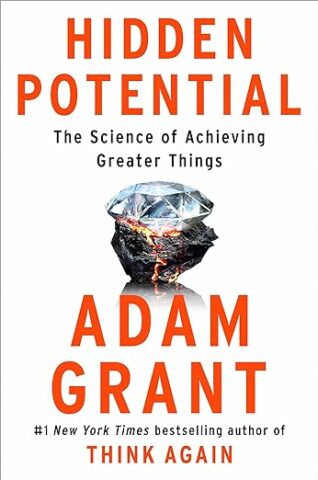ChatGPT syndrome: Unlock your potential !
Is your complex work environment – not to mention ChatGPT, which is making inroads into your job – making you uneasy about your ability to adjust to the world of tomorrow? Do you already suspect that you are surplus to requirements and that you’re working at the outer edge of your potential? Well, no: it’s simply not true! At the same time, you’re almost certainly ill-equipped to carry on growing. But there is good news: potential is something you can work on!
We’re assailed by conflicting messages about the need to be agile and adapt. And you’d really like to be, but it’s already hard enough keeping your head above water – which is why you’ve put proactivity and flexibility on the back burner for now. You’ve got a lot more potential to grow than you think, but no one has taught you how to build on it.

Hidden Potential by Adam Grant (Penguin Publishing Group, 2023).
1 – Unlearn these misconceptions! (Potential isn’t a gift set in stone)
Potential – or the ability to achieve great things – is often seen as an innate gift that is handed out in unequal, fixed measures. But research 1 into artists, scientists and top athletes has invalidated a number of misconceptions about potential, offering us all reassurance about our abilities.
- Potential is correlated with IQ. False Faux.
An investigation into chess players has revealed that their intelligence quotient (IQ) has very little impact on how they perform2. A high IQ means they can learn how to play more quickly, but it’s an advantage that declines as time passes. In reality, discipline, determination and proactive learning elevates players to the level of master and grandmaster and, more generally, helps them up their game.
- Potential manifests itself at a very early age. False
It’s true that there are some exceptionally young piano prodigies (Mozart, for example) or entrepreneurs who succeed aged 20. And then there are also so-called late bloomers, who – like J. S. Bach – come into their own later in life once they have had the opportunity to discover and develop their talent. And, though you’re unlikely to win the Fields Medal in your 40s, there are many other areas where you can shine!
- Potential is a starting point. False
We tend to assess potential based on what we see in the here and now, and based on abilities that are already obvious. Bu the truth is that these skills are no guarantee of future performance. Rather, potential is all about the ability to carry on getting better. It’s an answer to the question, “How far can you go?” rather than: “What are your strong points?”
© Copyright Business Digest - All rights reserved




